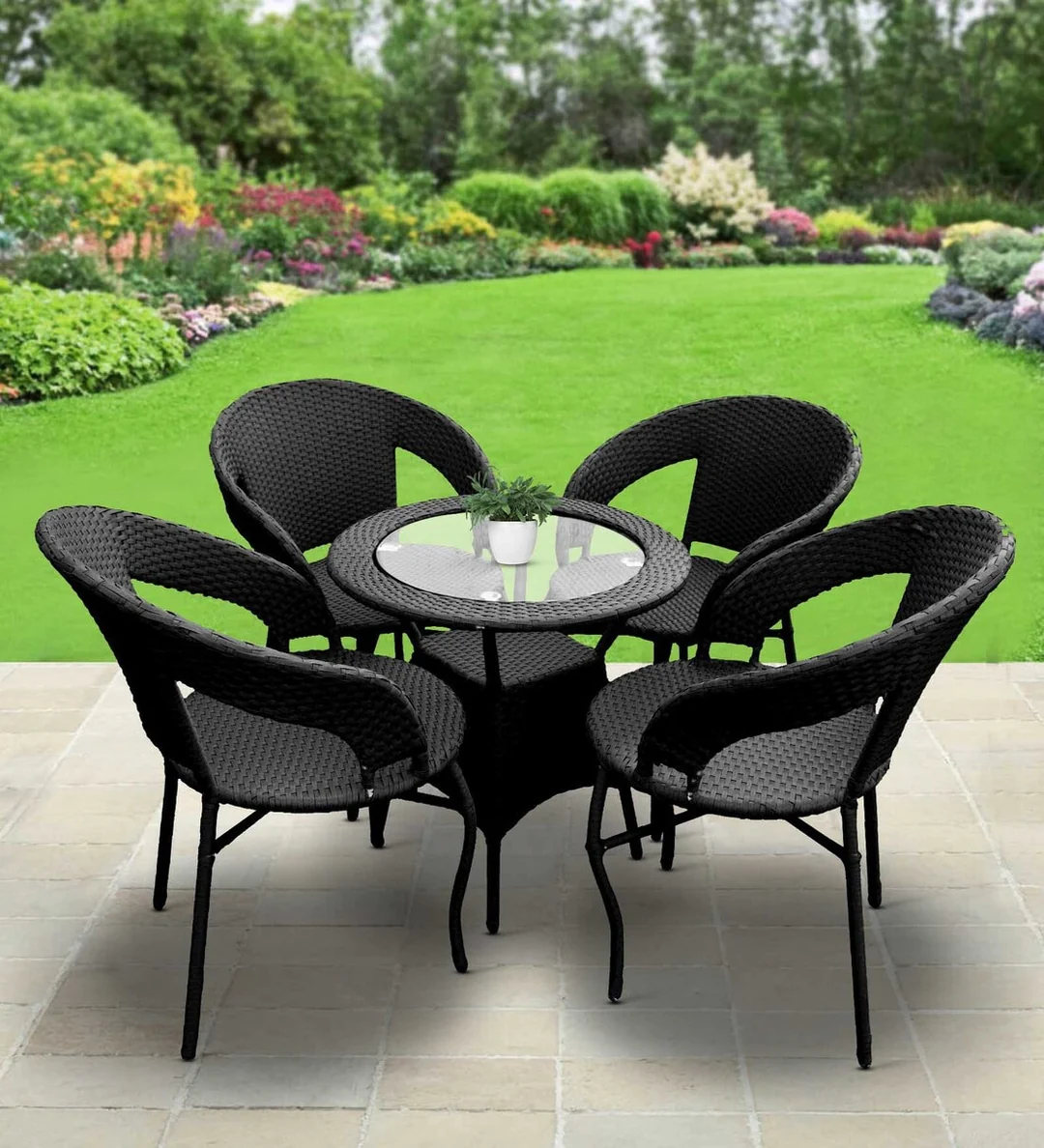No matter where you reside, outdoor furniture can help create a relaxing environment where family and friends can gather to spend quality time. When selecting pieces to accent your unique aesthetic.
If you live in an environment where humidity levels are high, look for powder-coated metal options which resist humidity and won’t rust – such as wrought iron, steel and aluminum.
1. Recycled Plastic
Recycled plastic outdoor furniture can be surprising durable and low maintenance, thanks to its durability. Unlike wood, recycled plastic won’t absorb moisture or rot like metal does; in addition, its water-resistance means it stands up well under harsh sunlight conditions and offers full sun protection.
Find a wide range of styles when shopping faux teak outdoor furniture sets from leading manufacturers. Additionally, some pieces mimic other materials – for instance creating pieces designed specifically to look like teak outdoor furniture sets can also be an option.
Loll Designs is an established recycle plastic manufacturer renowned for producing top-of-the-line lawn & garden, pool, dining, and Adirondack chairs made of molded plastic lumber derived from used milk jugs, detergent bottles and consumer plastic products which are cleaned, melted down and then formed into new pieces with lifetime guarantees against splintering or cracking.
2. Aluminum
Shopping for metal furniture offers many choices; these may include wrought iron pieces as well as those constructed of aluminum – an economical and resilient material ideal for outdoor settings. Aluminum offers lightness without compromising structural strength – an attractive feature of outdoor furnishings.
Aluminium is a naturally rustproof material, and the protective oxide layer that forms on its surface acts as an effective safeguard against environmental damage. That makes it particularly suitable for coastal regions where salt air and strong winds can wreak havoc on most other materials.
Aluminum furniture offers another advantage to homeowners: its ability to be painted in various styles and colors makes it easier to match existing decor themes while its lightweight nature makes it easy to rearrange furniture if desired.
3. Teak
Wood choices for outdoor furniture make a significant impactful statement about both its practical functionality and appearance. Teak is one of the most resilient materials used for making outdoor furniture, retaining its strength after prolonged exposure to rain, sun and snow while protecting itself against rot and bacteria while retaining its natural oils – with proper maintenance it could last over 100 years outdoors!
Teak wood is a natural beauty that adds elegance and refinement to any garden or patio space. With its distinctive grain patterns, teak offers a charming aesthetic while being easily maintained – its easy care makes cleaning much simpler as well as being resistant to humidity, rotting, and insect damage. When selecting high-quality FSC-certified teak it will ensure it has been harvested in an eco-friendly way thus lowering environmental costs associated with harvesting or sourcing the wood.
4. Rattan
Rattan outdoor furniture is a top choice when it comes to garden furnishings as it is lightweight, stylish, and cost-effective. Additionally, its varied styles, shapes and designs offer plenty of personal expression in your outdoor space. Furthermore, depending on its weave technique it can also provide strong durability features.
Rattan furniture is typically constructed by weaving full rod or half round techniques to achieve strength and durability, sometimes combined with aluminium for increased strength.
Rattan furniture is an ideal addition to UK gardens due to its weatherproof nature. As it originates from countries with hot climates, rattan naturally offers protection from UV rays, frost, and rain; thus making it suitable for use year-round without risking damage or deterioration; synthetic rattan furniture will likely sag over time as it ages more slowly than natural varieties.
5. Steel
Many types of furniture require specific maintenance plans in order to retain their appearance, such as cleaning, polishing and treating their material for longevity. Stainless steel outdoor furniture does not need these extra steps as it doesn’t absorb dust or grime and doesn’t get affected by UV rays or weather conditions like sunlight rays.
Aluminum is another metal commonly used for furniture frames, and its durability makes it an attractive option for homeowners living in climates with dramatic temperature and dryness fluctuations. Aluminum’s corrosion-free composition means it pairs beautifully with plush outdoor cushions to make comfortable outdoor lounge chairs and tables. Furthermore, its recyclable nature makes aluminum an eco-friendly material choice.


